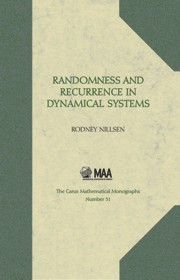1 - Background Ideas and Knowledge
Summary
When we have pushed the analysis to the end … and finally have come to considering a few natures understood only by themselves without prerequisites and needing nothing outside themselves to be conceived, then we have arrived at perfect knowledge of the proposed thing. When this thing merits it, we must try and have this perfect knowledge present in our minds all at once, and that is done by repeating the analysis several times until it seems to us that we see it as a complete whole in a single act of the mind.
Gottfried Wilhelm von Leibniz (1646–1716)Dynamical systems, iteration and orbits
Let A and B be sets and let f be a functionwith domain A and codomain B. That is, for each x ∈ A there corresponds f(x) ∈ B. We may indicate this situation symbolically by writing f : A → B. In the case when the domain and codomain are equal to a set S say, and f : S→ S, we say that f is a transformation on S. In such a case, we call the pair (S, f) a dynamical system. Thus, a dynamical system consists of a set together with a transformation on the set. Given a dynamical system (S, f), S may be called the phase space and the elements of S may be called states. If f → A → B and g : B → C, the composition of g with f is the function g o f : A → C given by (g o f) (x) = g(f(x) for all x ∈ A.
- Type
- Chapter
- Information
- Randomness and Recurrence in Dynamical SystemsA Real Analysis Approach, pp. 1 - 23Publisher: Mathematical Association of AmericaPrint publication year: 2010



